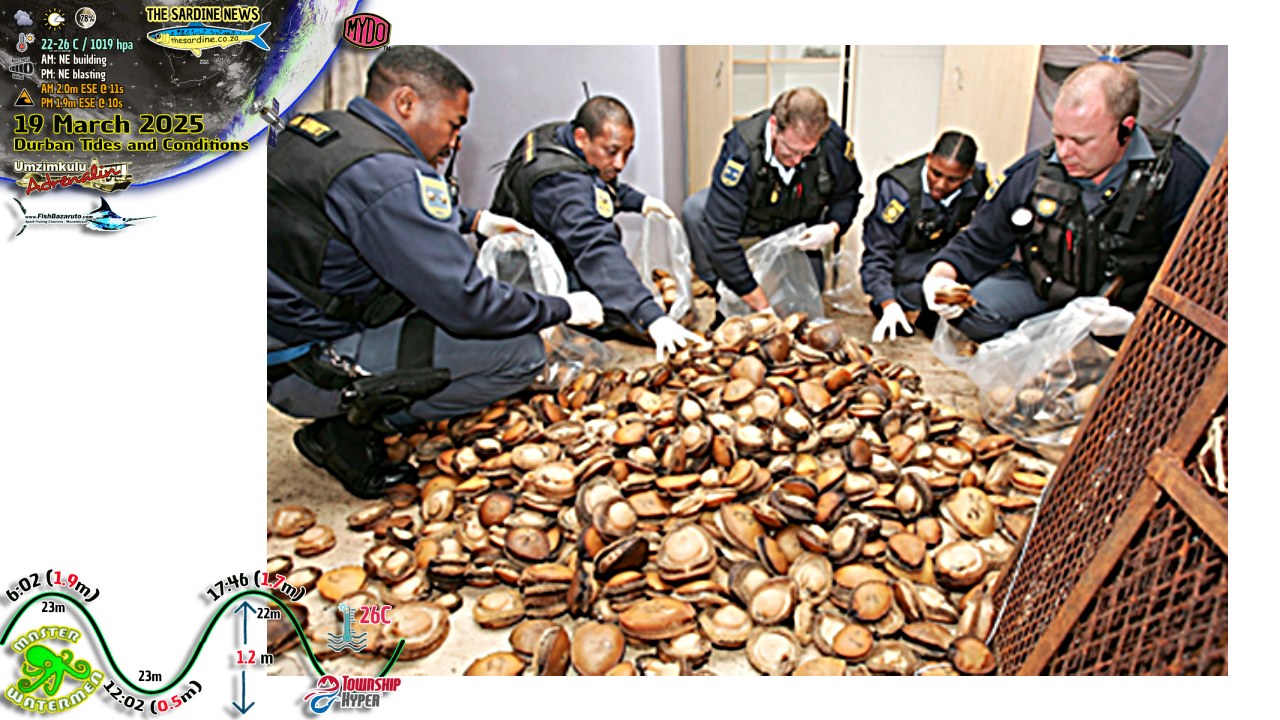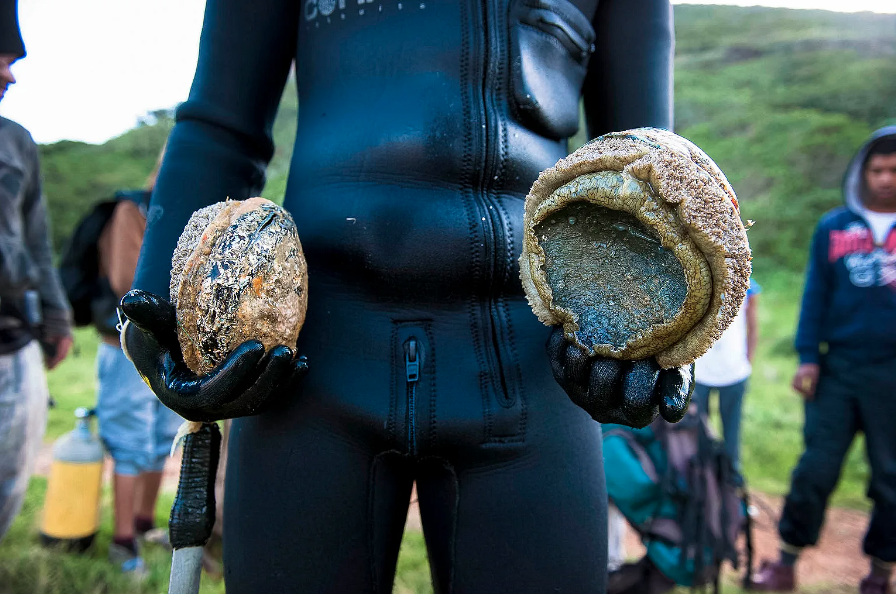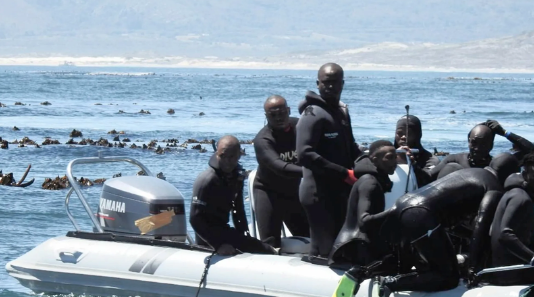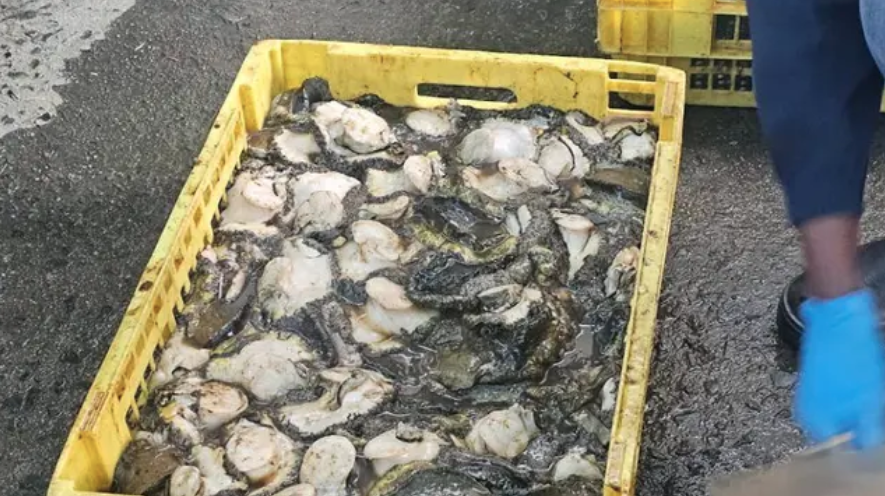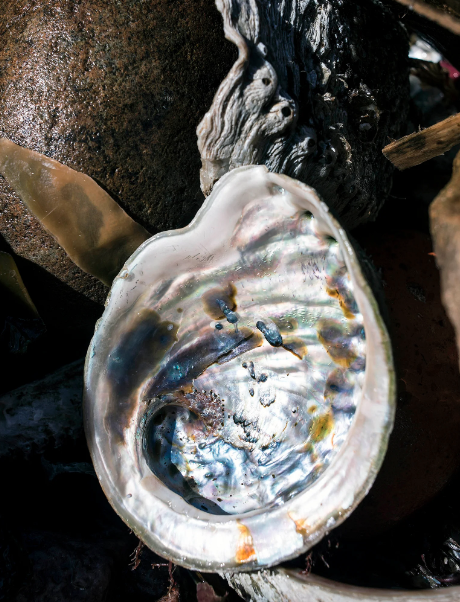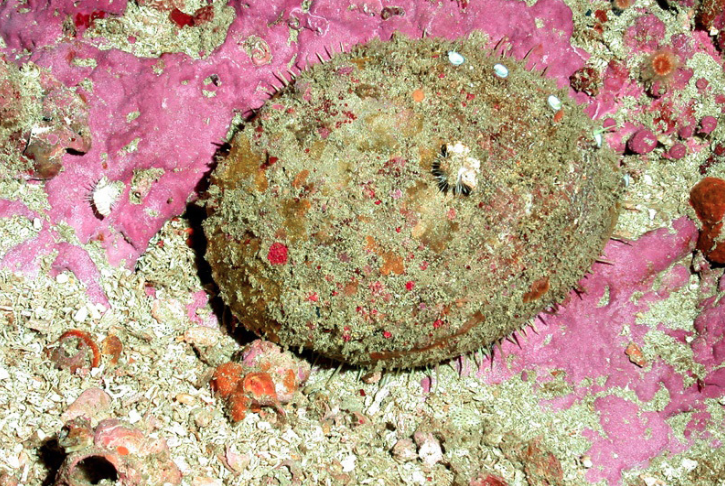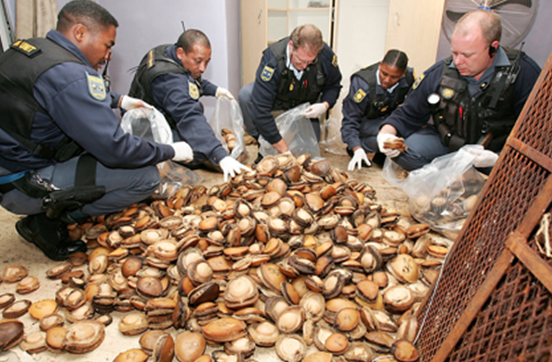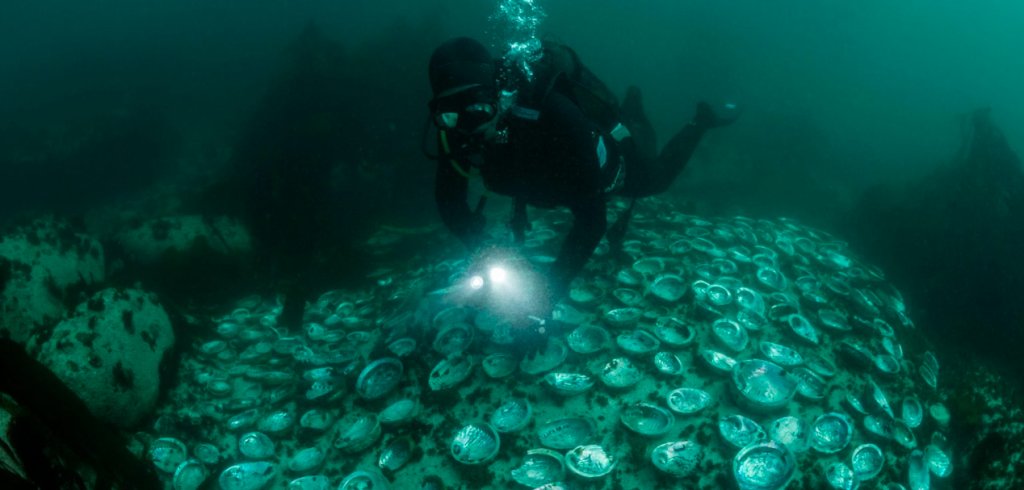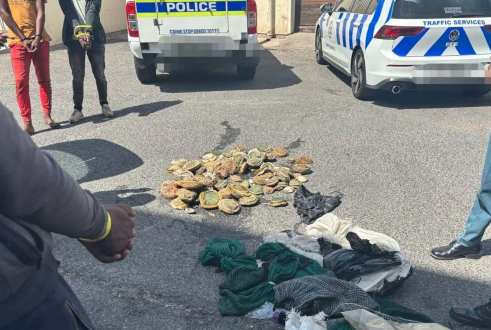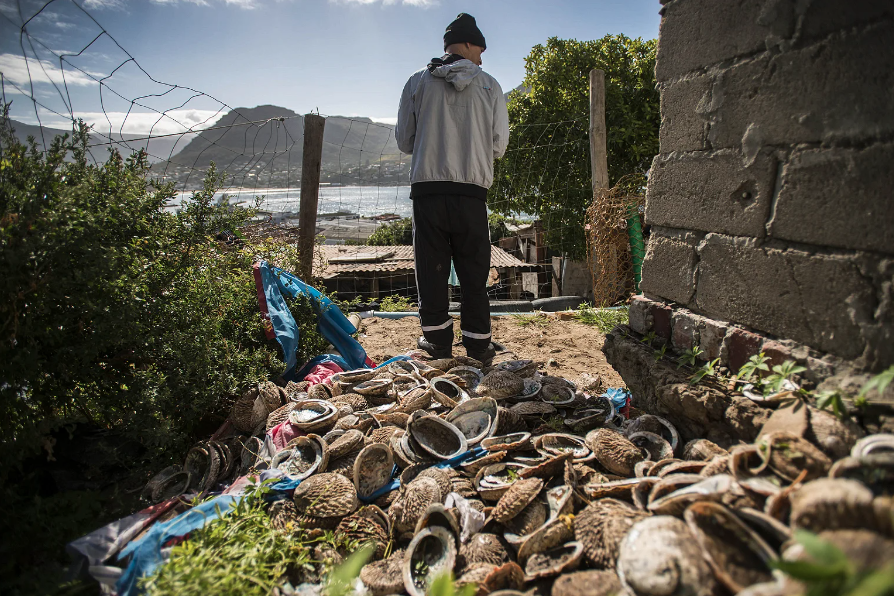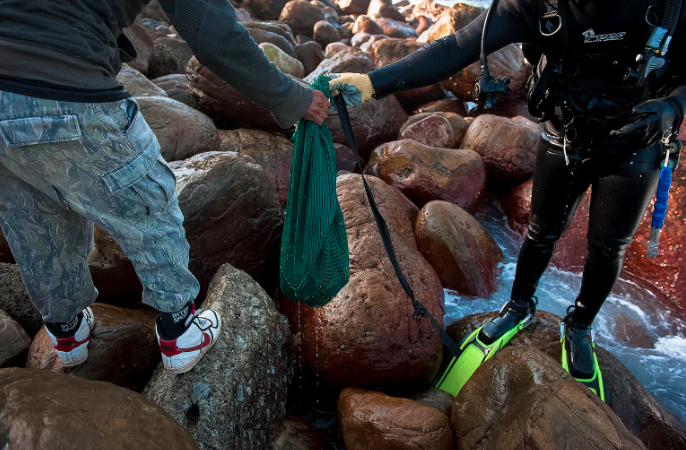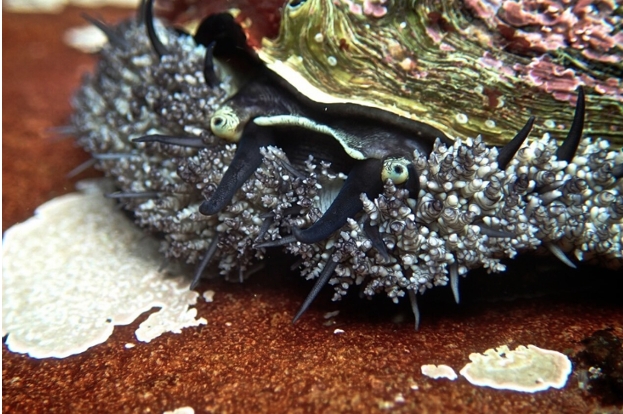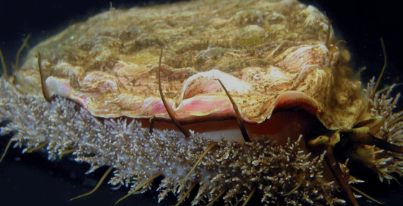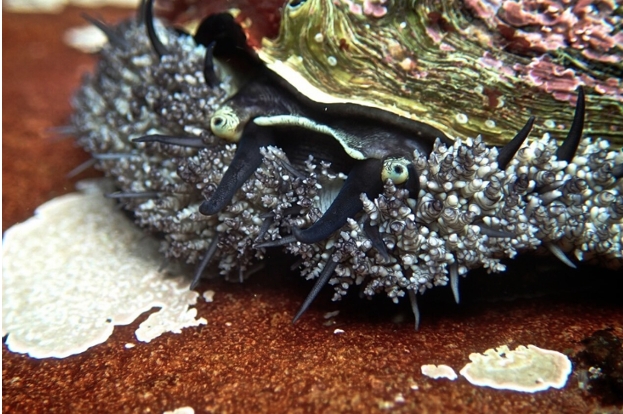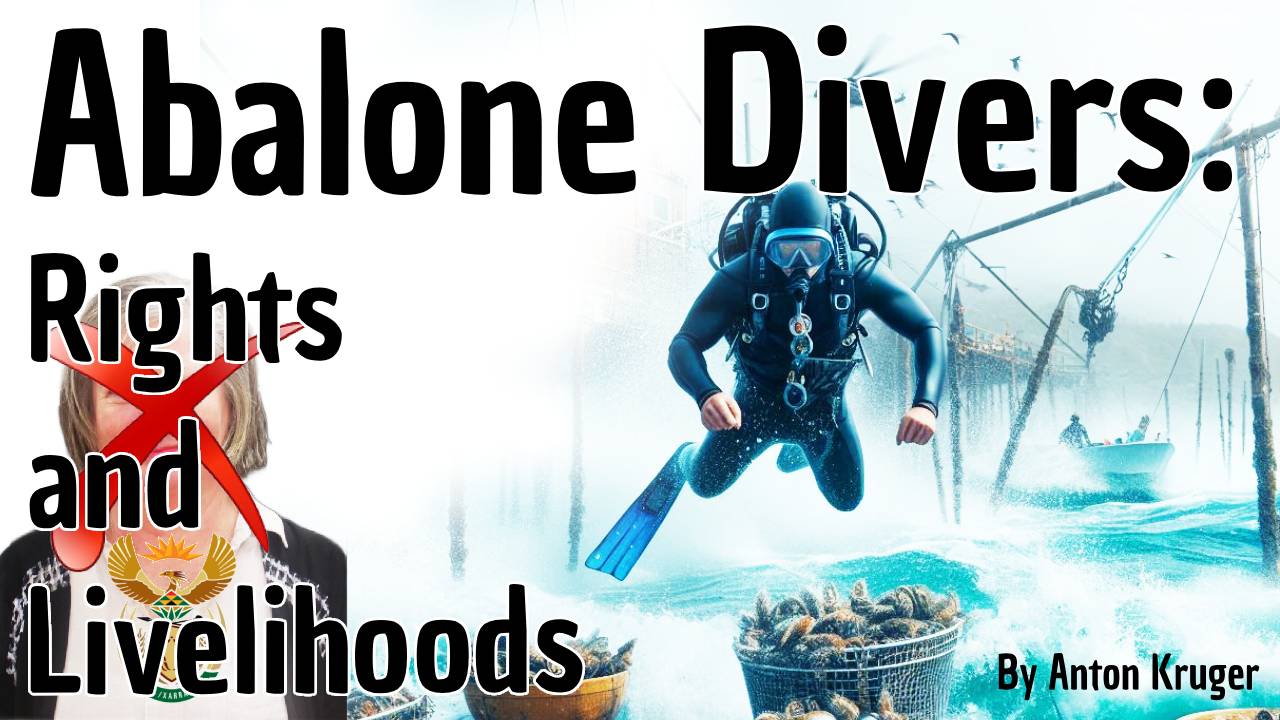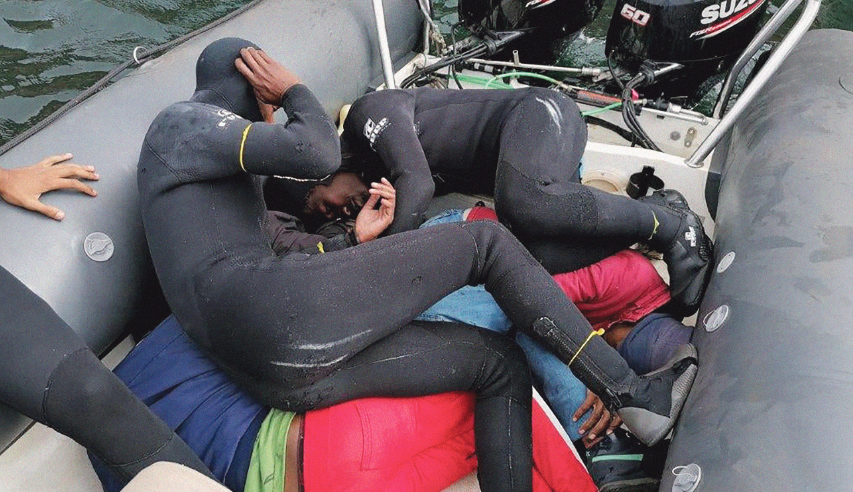
Abalone: Policies that turn Quota Holders into Poachers
Abalone: Policies that turn Quota Holders into Poachers: In 2004, in a great leap towards undoing the wrongs committed in the apartheid era, 301 abalone quotas were awarded, mostly to individuals from previously disadvantaged fishing communities.
The Fishing Rights Allocation Process (FRAP2004) was fair and open to all, with the scoring weighted in such a way that you had a much better chance of success if you came from a previously disadvantaged community. Other matters that were considered was a history in fishing, relevant qualifications like diving and skippers tickets, if you owned a suitable vessel, investment in the fishing industry etc.
The department organised free 15m abalone diving as well as skippers courses for those in
need, to ensure previously disadvantaged individuals were not excluded.
In an attempt to accommodate as many fishers as possible, minimum viable quotas were given to the maximum number of fishers that the abalone resource could sustain. The intention to provide minimum viable quotas was recorded and gazetted in the fishing policies of the time, and was repeated in the 2016 fishing policies. This process was orchestrated by arguably one of the best heads of our fisheries
department South Africa has had up to date, Mr. Horst Kleinschmidt.
Unfortunately Mr. Kleinschmidt did not foresee that our abalone resource would soon be decimated by
poaching. In 2004, abalone quotas were given for a period of 10 years, and it was made clear to the fishers that their catch performance, involvement in the fishing, how well they looked after their crew, if they abided by the rules and what they achieved with the proceeds of their quotas would be monitored. At the end of the 10 years, all of this would be considered, after which the department would renew the quotas of those that ticked the appropriate boxes. This should have lifted these fishers out of poverty and set them up for life, provided they played by the rules.
Mr. Kleinscmidt as well as other competent officials resigned shortly afterwards. The word on the ground was that increased corruption in the government made it impossible for them to be effective at their jobs. Shortly afterwards the Zuma era started, and from that point onwards it all went downhill. Effective policing of our marine resources
became almost nonexistent, our abalone resource was plundered to commercial extinction in most areas and quotas were cut to far below the minimum viable level.
Quotas were also not renewed after the ten years as was planned, but previous quota holders were issued with “exemptions” on a yearly basis, providing zero security and leaving fishers uncertain of a future income.
Now consider your legal abalone quota holder, trying to abide by the law, but living next to a known poacher. The poacher drives the latest Toyota 4×4 Land Cruiser, is busy adding another story to his house, makes frequent trips to the casino in Caledon and “parties” day and night when the sea is too rough to make a trip to the “bank”, or to be
more precise, Robben Island. Money for Nothing and Chicks for Free – the life of a Rock Star.
He almost never gets caught and even if he does, chances are good that he will get off lightly. He does not have to worry about levies, taxes, boat surveys or the paperwork that accompanies it. In most fishing communities, the poacher is accepted as an upstanding and prosperous member of the community. The quota holder, on the other hand, suffers quota cut after quota cut as the abalone resource diminishes, and earns less and less. The salaries of the DFFE officials that “calculates” these quota cuts steadily increase, along with those of fellow state employees. Quota holders also have to jump through ever increasing hoops, many of them bordering on the ridiculous, and several of the permit conditions DFFE dream up for them are cripplingly expensive. It almost seems as if the department is trying to compensate for their lack of effective enforcement against hardcore poachers by making life more difficult for the legal divers.
And then there is of course the ever increasing taxes, levies, permit fees, boat surveys, expensive safety equipment etc. etc.
Currently abalone quota holders literally spend more time navigating through red tape and begging for useless pieces of paper from lazy officials than harvesting their tiny quotas.
While the abalone poacher is living in opulence, the legal diver can no longer put food on the table for his family. The new replacement cost of the equipment necessary for commercial abalone diving is R1,7 million (2022 figures). Industry standards suggest that, for a business to be viable, you should be able to recover your investment in 3
years time. Quota holders should therefore be aiming at an income of about R570 000 per year; after costs. Consider then that quota holders are currently doing well if they clear R50 000 per year after paying crew, levies, taxes, processing and marketing fees, permit fees, surveys, harbour fees and fuel.
That is, if they do their own diving. Do you think you can live off R50 000 per year? (The minimum wage in South Africa
happens to be R60 000.) After only a few years of quota cuts it became financially unviable to own and maintain a
fishing vessel. The majority of quota holders opted to find other employment, sell their boats and pay someone else to harvest their abalone, which is sound financial reasoning. They effectively become paper quota holders from this point onwards.
A paper quota holder is a person that benefits from a fishing right, but pays someone else to do the harvesting. Interestingly enough, “officially” this is frowned upon by the department, but not in practice. For instance, the department has no problem if you appoint a “representative” to apply for your permit and harvest your fish. Paper quotas have in fact become a huge problem in most of South Africa’s fishing sector; and are
taking the food from the mouths of the real fishermen.
Those that chose to keep fishing had a hard choice to make, namely starve, or start breaking the rules and join the ranks of the poachers to supplement their incomes. Everything considered; can you blame them for stepping over the line? What would you have done if you were in their situation; and often had few other skills? The department
has failed them. The situation is however not unique to the abalone sector. The real problem seems to be that politicians decided it is a good idea to trade fishing rights for votes.
Over the past decade the department has awarded a multitude of tiny, unviable quotas in what
seems to be some kind of socialist revolution that will keep the masses poor and begging till doomsday comes. Many of those receiving these tiny quotas have never been fishermen, and are unlikely to ever put their feet on a fishing vessel. Most of these fishing rights are harvested by a small number of fishers, often the current quota
holders, making the majority of the new entrants paper quotas. Those that do venture on the ocean, will quickly be faced with the same choice: break the rules, or starve.
The best example of this can probably be found in the West Coast Rock Lobster Sector.
There are however legal as well as moral issues with all of this. The current quota holders have a legitimate expectation (a legal concept) to keep making a living the way they have for more than 20 years. You cannot just take their quotas away, as the department intended. The other problem is the various gazetted fishing policies, that
clearly state that minimum viable quotas will be awarded. There is of course no point in awarding quotas that are not viable. If you are financing and maintaining your vessel and towing vehicle with money generated not from your legal fishing rights, then you never needed a quota in the first place – or you are a criminal. Rumour is that the Department intends to remove the “minimum viable” clause from the various fishing policies.
Now, for a quick case study. For convenience I will use myself. I am lucky enough to have an abalone quota (reduced since I also have a lobster quota), a Nearshore West Coast Rock Lobster quota AND a linefish quota (4 man). Theoretically I should be set for life; and according to the various fishing policies any single one of these quotas should be enough to sustain my family and maintain my equipment. Yet, I am living in perpetual debt, and currently cannot afford to drive the 100km to Cape Town to collect my abalone permit ( a new condition dreamed up by the department who used to email our permits), or put fuel in my boat to harvest my abalone.
I own a 5m boat that is 30 years old, with two motors that come from the early 1990’s. My towing vehicle also dates back to the 1990’s and is literally rusting to pieces. I am not a big spender and I do not use drugs, apart from the occasional beer or glass of wine. I am married and have twin sons aged 9, and we are home schooling. We
generally live frugally.
Financially, trying to play by the rules has left me in a deep hole. From abalone I cleared R40 000 last year, and from rock lobster I cleared R20 000 after costs. From linefish I made no profit. Sure, I had some excellent and profitable days catching fish, but the profits were quickly eaten up by the fuel cost of many unsuccessful trips when the fish was simply not there; or not biting. I have suggested some more fuel efficient options to the department, but were haughtily informed that the department could not consider these options for reasons unexplained.
Generally, I try to abide by the law. Even so, I get butterflies in my stomach when approached by Sea Fisheries Inspectors. There are just so many things that need to be in place; and it is very easy to unintentionally break one of the myriad permit conditions leaving you with a crippling fine; or even confiscation of your equipment and arrest.
Once again, the Department needs to come to the table. Giving unviable quotas will ultimately lead to the destruction of our marine living resources, and will only increase the poverty of our fishing communities. I am urging those in positions of power to apply pressure where it is needed.
Don’t miss the next article.
Anton Kruger
Sardines and Sightings
Check out our annual Sardine Run Map! Download our app to your phone or device, accept notifications, and you will never miss a single sardine.
Here are the links to existing and past Sardine Sighting Maps…
2024 Sardine Map
2023 Sardine Map
2021 Sardine Map
Channels
Brucifire Surf Retorts – highly entertaining surf reporting
Master Watermen – news from way down deep
The Sardine News – neva miss a single sardine
FishBazaruto – 1000 pounds plus
MYDO Tackle Talk – highly technical sport fishing
Surf Launching Southern Africa – getting out there safely
Water Woes – complain about your municipality

